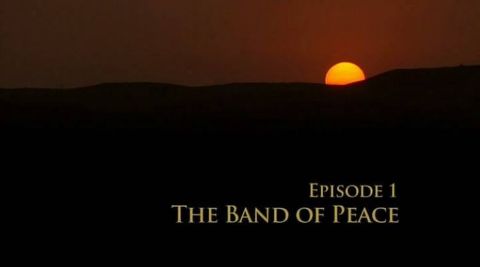The Revelation of the Pyramids • 2010
Narrated by Brian Cox, Revelation of the Pyramids takes an in-depth look into one of Seven Wonders of the World, the Great Pyramids of Egypt. For centuries, the Great Pyramids have fascinated Mankind; every year brings a batch of new theories, from the plausible to the absolutely bizarre. One lone seeker, after more than thirty-seven years of study and research, has at last managed first to understand and then to prove what lies behind this greatest of archaeological mysteries: a message of paramount importance for all mankind, through time and space. Its key - and its heart - are the Great Pyramids of Egypt. From China to Peru, from Egypt to Mexico, throughout the Middle East - through the world's oldest, most enigmatic and often most beautiful sites - the director has spent six years of investigation, guided by his anonymous informant, verifying his discoveries one by one, and meeting the planet's most eminent scientific and technical specialists. The result will shake the history of mankind as it is taught to its very core, and revolutionize Egyptology entirely. A great odyssey along a breathtaking route rich in staggering imagery, an extraordinary scientific leap and finally a revelation as unexpected as it is spectacular: the message bequeathed to future generations by these mysterious builders.
Make a donation
Buy a brother a hot coffee? Or a cold beer?
Hope you're finding these documentaries fascinating and eye-opening. It's just me, working hard behind the scenes to bring you this enriching content.
Running and maintaining a website like this takes time and resources. That's why I'm reaching out to you. If you appreciate what I do and would like to support my efforts, would you consider "buying me a coffee"?
Donation addresses
BTC: bc1q8ldskxh4x9qnddhcrgcun8rtvddeldm2a07r2v
ETH: 0x5CCAAA1afc5c5D814129d99277dDb5A979672116
With your donation through , you can show your appreciation and help me keep this project going. Every contribution, no matter how small, makes a significant impact. It goes directly towards covering server costs.





